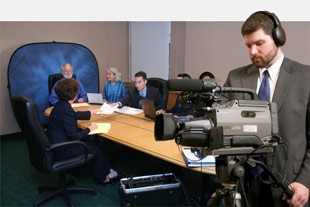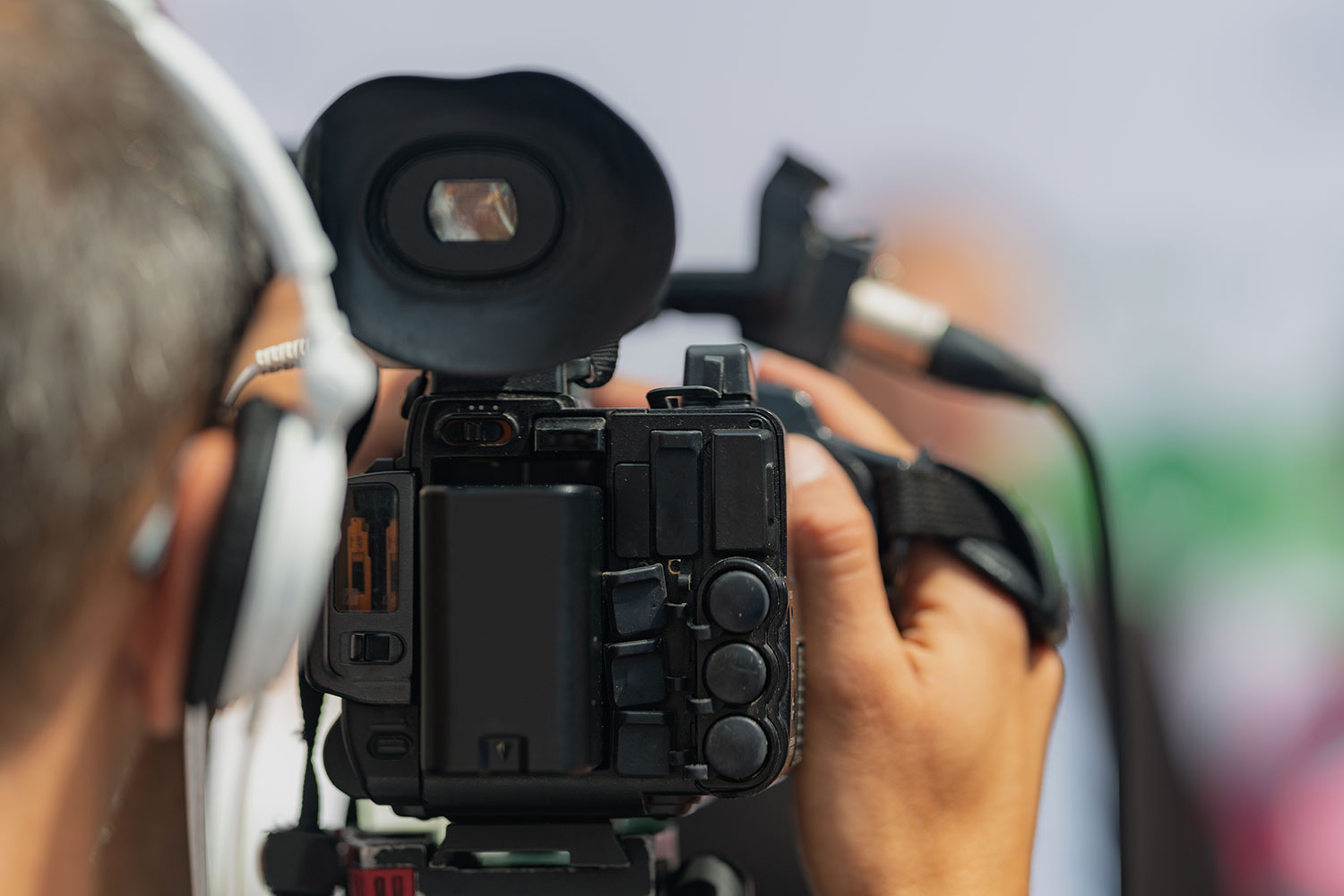Expert Legal Videography Services for Courtroom Needs.
Expert Legal Videography Services for Courtroom Needs.
Blog Article
The Duty of Lawful Videography in Depositions and Trials
Lawful videography has arised as a crucial tool in both depositions and tests, offering a complex technique to documenting witness testimonies. As legal professionals increasingly acknowledge its value, it triggers a deeper evaluation of exactly how these aesthetic documents can influence juror perceptions and trial results.
Relevance of Lawful Videography
Lawful videography plays a crucial function in the paperwork and presentation of depositions and trials. This specific area combines technological abilities with legal understanding to develop a reliable record of process that can considerably influence instance results. The visual element of lawful videography enhances the understanding of witness statement, permitting jurors and judges to observe not just the spoken words but likewise the demeanor, emotions, and body movement of the witnesses.

The relevance of lawful videography extends beyond the courtroom; it likewise plays a vital duty in maintaining proof for future reference, whether for appeals or additional lawful action. Its assimilation into the lawful process is crucial for ensuring a fair and precise depiction of the truths, inevitably contributing to the pursuit of justice.

Process of Legal Videography
While recording the subtleties of depositions and trials, the process of lawful videography includes a number of vital actions that make certain high-grade, exact recordings. An expert lawful videographer prepares by assessing the instance products and understanding the particular demands of the deposition or trial. This prep work consists of acquainting themselves with the individuals and the context, which aids in capturing important information.
On the day of the recording, the videographer establishes the essential tools, which typically includes high-def cameras, microphones, and proper lighting. Ensuring optimal angles and sound quality is vital, as it straight affects the performance of the recording. The videographer communicates with attorneys and participants to develop methods, guaranteeing that every person comprehends the recording process.
During the deposition or trial, the videographer carefully videotapes the process, paying attention to both verbal and non-verbal signs. legal videography. This consists of recording the disposition and responses of witnesses and attorneys. After the session concludes, the videographer may edit the video for clarity and conformity with legal standards, producing an end product that precisely reflects the process for future referral and use in lawful contexts
Advantages in Depositions
The incorporation of videography in depositions provides many benefits that improve the total procedure of collecting evidence. One main advantage is the ability to catch witness testimonies with aesthetic and acoustic fidelity, offering a more precise depiction of the witness's disposition, tone, and body movement. This multidimensional technique permits attorneys and juries to evaluate credibility a lot more efficiently than standard written records alone.
Additionally, videographed depositions function as a powerful tool for maintaining testimony. Must a witness come to be not available for test, their taped deposition can be played in court, making certain that their evidence stays obtainable and pertinent. This aspect considerably lowers the threat of losing essential info that might impact case outcomes.
Additionally, making use of click to read lawful videography promotes much better preparation for attorneys. Examining video footage allows lawful teams to analyze and refine their methods, recognizing toughness and weaknesses in their cases. This preparatory benefit can cause even more compelling discussions in court.
Last but not least, videography enhances the overall professionalism of the deposition process, instilling confidence in clients pertaining to the thoroughness of their lawful depiction. By leveraging technology, attorneys can substantially enhance the effectiveness of depositions.
Effect On Trials
In lots of trials, the combination of videography can substantially affect the presentation of evidence and the jury's perception. Legal videography captures witness testimonies and crucial evidence in a dynamic format, allowing jurors to involve with the product on several levels. This visual component boosts the narration element of a trial, offering context and emotional resonance that typical text-based proof may lack.
Furthermore, video recordings can offer as effective tools for impeachment during interrogation. When disparities develop between a witness's prior declarations and their court room statement, video evidence gives an unbiased recommendation that can sway jurors' point of views. This immediacy and quality can reinforce the integrity of a celebration's story while simultaneously threatening opposing disagreements.
Additionally, making use of videography can assist streamline complicated info, making it more obtainable to jurors who might have a hard time to grasp detailed details offered exclusively through spoken testimony. By integrating visuals with acoustic information, lawful visit this page videography can enhance retention and understanding, inevitably influencing the court's decision-making process. The impact of videography in tests extends beyond plain aesthetic appeals; it plays a crucial function in forming the legal landscape and results.
Future Trends in Legal Videography
As we look towards the future of lawful videography, several arising patterns assure to reshape its function within the court room. One substantial trend is the combination of expert system (AI) in video evaluation and editing and enhancing - legal videography. AI can improve the process of recognizing key moments in recorded depositions, enabling attorneys to rapidly access appropriate material, consequently boosting efficiency in situation preparation
Furthermore, the surge of digital reality (VIRTUAL REALITY) and augmented truth (AR) modern technologies is anticipated to transform how jurors experience evidence. By submersing jurors in a simulated atmosphere, these innovations can give an extra profound understanding of complicated situations, causing more enlightened deliberations.

Moreover, the enhancing demand for remote depositions, sped up by the COVID-19 pandemic, will explanation likely continue. Legal videographers will certainly need to adapt to brand-new software application and platforms to guarantee premium recordings in virtual settings.
Last but not least, the expanding emphasis on information protection will certainly require stricter methods for keeping and sharing video proof. As the legal landscape advances, lawful videographers should stay abreast of these trends to keep their importance and performance in the judicial process.

Conclusion
In recap, legal videography serves an important feature in the judicial process, enhancing the integrity of depositions and trials. As technology continues to evolve, legal videography is positioned to additional transform its role within the legal landscape.
Report this page